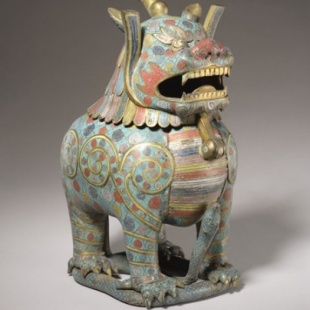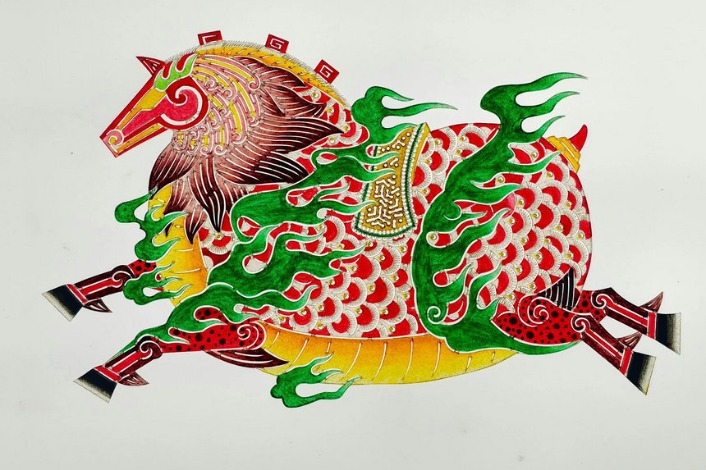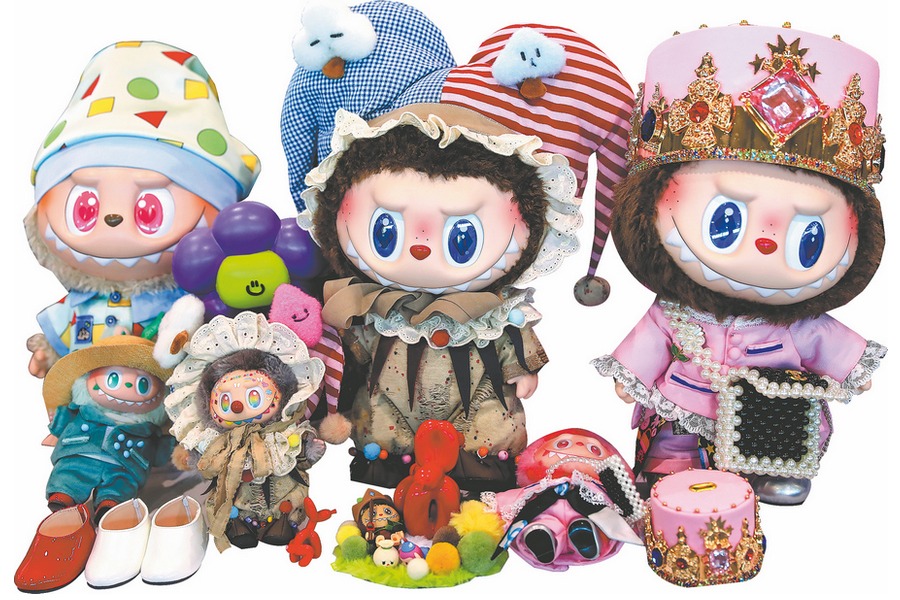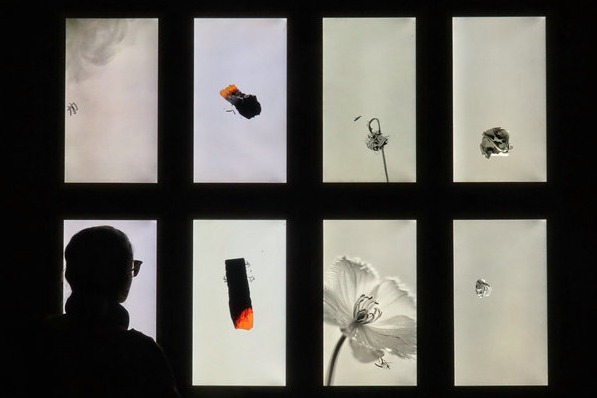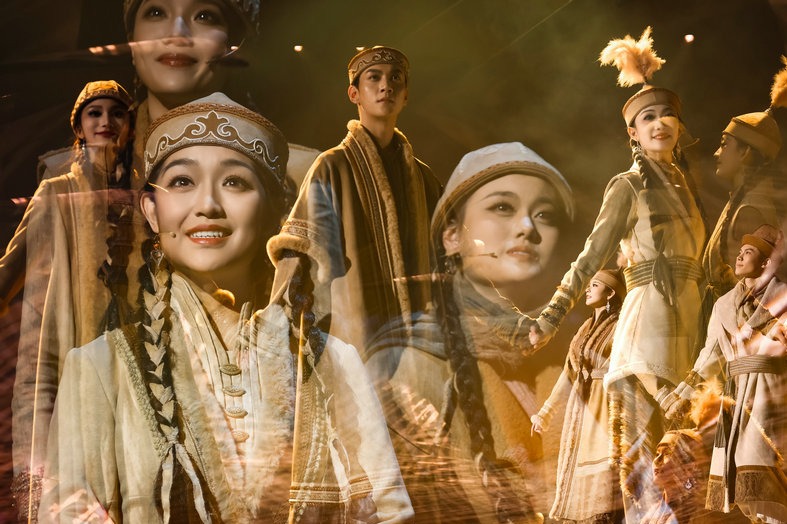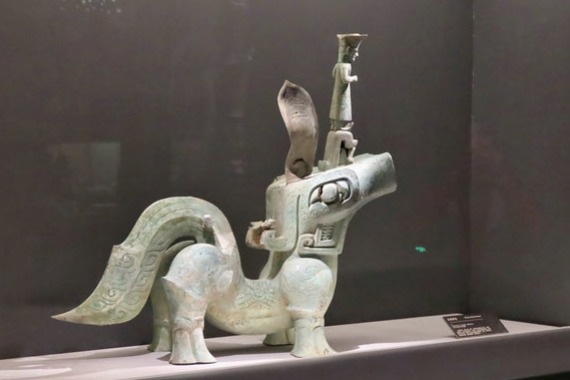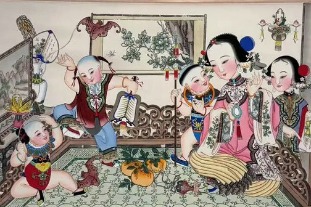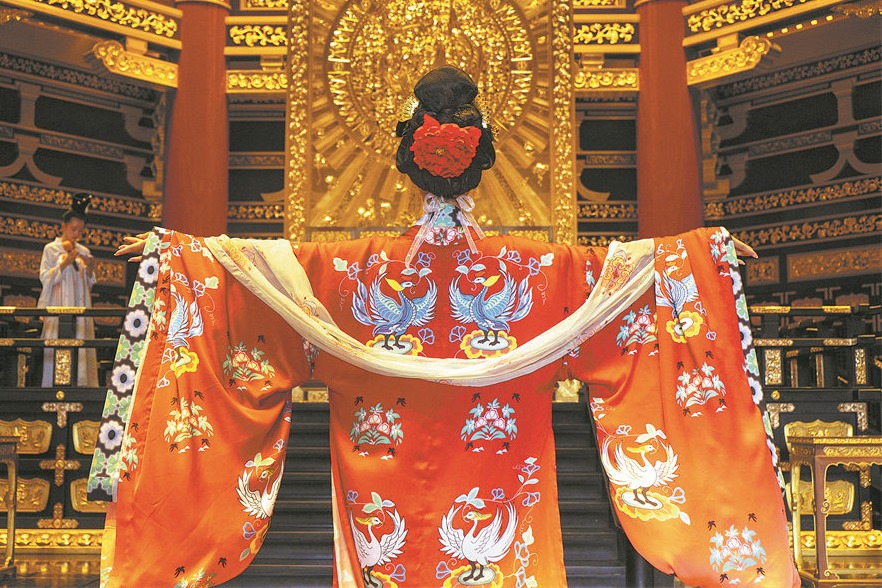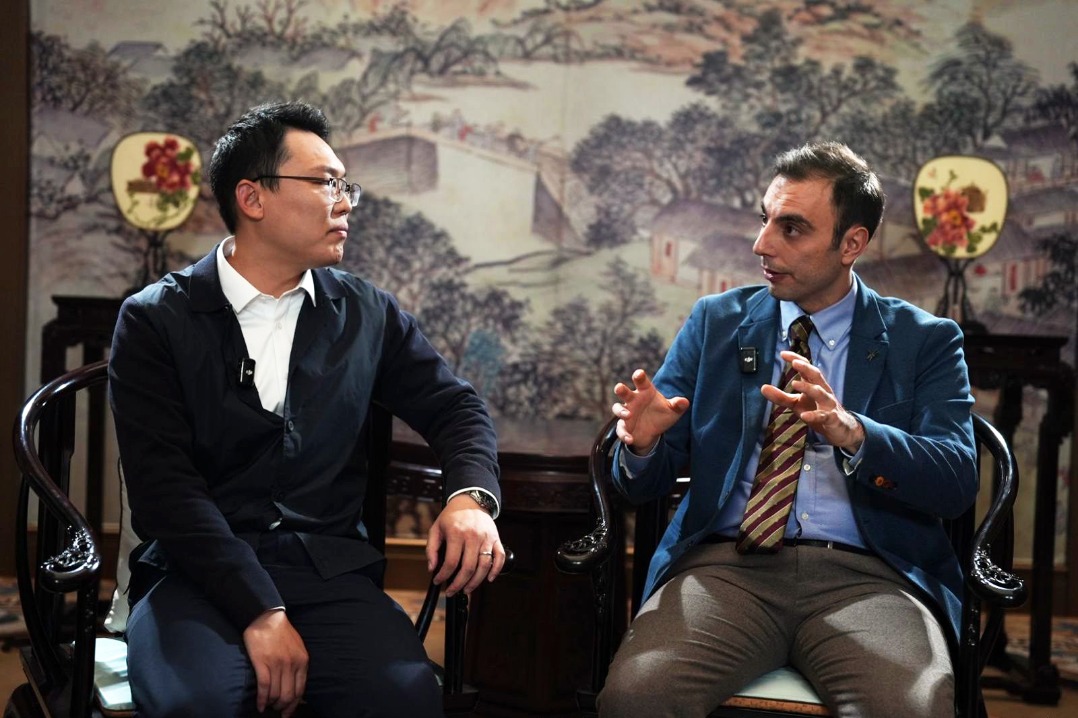Palace musical gives children a treat


When a 400-year-old mythical animal from the former royal palace still harbors a childlike curiosity to explore the outside world, what chemistry will it have with today's younger generation, who grew up with smartphones and various digital devices? A new musical for children tackles that very question.
And the "younger generation "doesn't only refer to the characters on the stage, but also those clapping their hands in the auditorium at the China National Opera House.
Friday night marked the premiere of Luduan, the first original musical especially for children to be produced by the Palace Museum in Beijing, also known as the Forbidden City. The Forbidden City was China's imperial palace from 1420 until the end of imperial rule in 1911.
The musical's eponymous protagonist is an enamel incense burner in the shape of a unicorn, born during the Wanli era (1573-1620) of the Ming Dynasty (1368-1644).
In myth, Luduan is said to be able to travel 9,000 kilometers a day and speak many languages. It was, therefore, often worshipped as a guarding deity for wise rulers.
In this new story created for the stage, it comes alive and encounters a child who has been fed with a daily diet of fragmented information on the internet and shows little interest in grand palaces rich in history. However, their adventure makes the child realize the meaning of lasting devotion to relics in the museum, and the importance of safeguarding them, like his grandfather does.
"Stage performances have a strong power to touch people's souls," says Yan Hongbin, chief producer of the musical and former deputy director of the Palace Museum. "This is an important exploration, a crossover between art for children and the promotion of cultural heritage. More children may be inspired to learn about the stories behind the relics featured in the play and absorb knowledge of traditional culture."
Hearing the continuous laughter and cheering from the audience will encourage and please not only the actors on the stage, but also the conservators of cultural relics-some of whom may have been in the career for a lifetime.
It took about two years to prepare for the performance of the play, and all lines in the musical were rigidly supervised by experts working at the Palace Museum to ensure accuracy. Historical knowledge is mixed into designs ranging from backdrops and stage sets to details of costumes.


